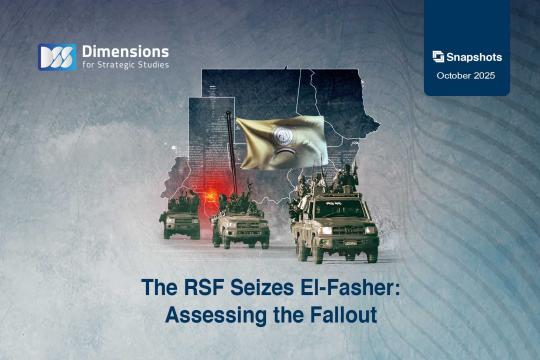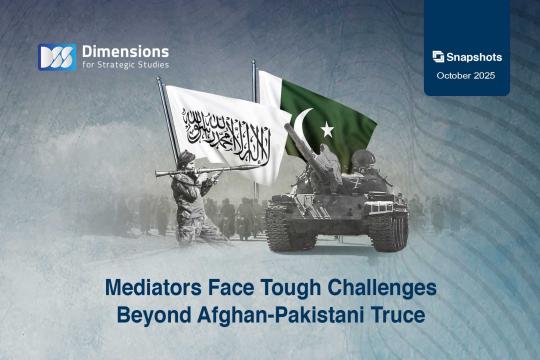
Russia’s Stance on the War in Gaza
2023-11-212152 view
Western capitals were quick to express their condolences to Israel and condemn Hamas after the militant group’s deadly attack on October 7, which it labelled “Al-Aqsa Flood.” Russia, on the other hand, has been broadly supportive of the Palestinians. This article discusses why, examining Russian official statements, the Kremlin’s motives and the possible consequences.
The Evolution of Russia’s Position Following the “Al-Aqsa Flood” Operation
The first Russian statements on the attack came from Deputy Minister of Foreign Affairs Mikhail Bogdanov, who merely said: “Russia is in contact with Israel, Palestine, and the Arab countries, and urges the parties to the conflict to reach a ceasefire.” He emphasized the importance of implementing international law and resolutions, the two-state solution and a return to negotiations, in the framework of the International Quartet on Middle East Peace.
The Russian Foreign Ministry confirmed Bogdanov’s position through spokeswoman Maria Zakharova, who said: “Russia sees the escalation of the conflict as a result of non-compliance with United Nations Security Council resolutions, and the West’s obstruction of the work of the Quartet on the Middle East.”
The deputy chairman of Russia’s Security Council, Dmitry Medvedev, also blamed the West for the outbreak of conflict, citing “America’s maniacal passion for igniting conflicts everywhere on the planet”, and accusing it of providing aid to “neo-Nazis”, a reference to the Ukrainian government.
The Federal Agency for Air Transport (Rosaviatsiya) meanwhile placed restrictions on night-time flights between Moscow and Tel Aviv.
At the “Russian Energy Week” forum on October 11, President Vladimir Putin expressed his own position for the first time, blaming the West for causing the escalation by failing to grant the Palestinians “their right to establish a state.” Several days later, he said he could not stop himself “crying” on seeing scenes of “the killing of Gaza's children.”
Although Russia has, at the UN Security Council, condemned the Hamas attack on Israeli civilians, it has criticized Israel for its actions and its “disproportionate” response. Moscow has also criticized the West for failing to pressure Israel and bring about the creation of an independent Palestinian state.
On October 26, a delegation from Hamas, headed by Mousa Abu Marzouq, arrived in Moscow and held several meetings with Foreign Ministry officials. This prompted the Israeli Foreign Ministry to summon the Russian ambassador to Israel in protest at the move.
Factors in Russia’s Relations with Israel
Israeli relations with Moscow have passed through several historical stages. They have evolved significantly during Putin’s rule, specifically since the war over South Ossetia in 2008, in which Israel actively supported Russia’s adversary, Georgia. Despite Russia’s victory in this minor war, this support revealed the weakness of the Russian army’s technological capabilities and Israel’s ability to disturb Russia, should it choose to do so, in its immediate neighborhood. However, this prompted Russia to establish a stronger relationship with Israel and withhold the delivery of several advanced weapons to the Syrian regime, as well as taking a diplomatic position supportive of the Palestinian cause, without taking real actions on the ground to irritate Israel.
The Kremlin’s calculation was based on several factors, most importantly:
·Israel was initially established with British support, but the credit for the international resolution granting it legitimacy and arming it during the 1948 war is largely due to Soviet support. Despite this, Moscow has not reaped the rewards of this support.
·Soviet-era bias in favor of the Arabs led to the severing of diplomatic relations with Israel after the Six Day War of 1967, weakening Russia’s role and influence. This was evident in its exclusion from peace negotiations after the Yom Kippur war of 1973, when the United States worked alone in mediating the Camp David accords and the subsequent Egyptian-Israeli peace agreement, as well as later agreements between the Arabs and Israel.
· All of Israel’s prime ministers, from David Ben-Gurion to Benjamin Netanyahu (with the exception of Naftali Bennett), were born in or descendent from Jews born in the Russian Empire. More than a quarter of the Israeli population identifies as being of Russian origin, a major asset that Russia can exploit to advance its interests in the region.
· Russia’s maintenance of good relations with Jews in general, and Israel in particular, allows it to improve its image in the West as well as creating a back channel in the case of disagreements with the US. It also strengthens Israel’s international safety network as well as giving Russia a role in questions of peace, international affairs and the Middle East.
On this basis, a new Russian-Israeli relationship has been built during the Putin era. This has allowed for coordination between the two sides in Syria, where Russia turns a blind eye to Israel’s air strikes and direct military attacks on pro-regime forces. In return, Israel does not intervene on behalf of the US, or on its own initiative, to extend decisive assistance to Russia’s opponents in its post-Soviet hinterland. Israel has thus refrained from sending any advanced weapons to Ukraine.
Russia’s Motives
After Russia’s “annexation” of the Crimean Peninsula, the Kremlin began showing the first signs of doubt about the value of favoring Israel, as well as suspicions over the role of the Jewish lobby in Russia and the support the latter receives from its counterpart in the West. The situation changed decisively after February 24, 2022, when Russia invaded Ukraine. Jewish elites in Russia turned against the Kremlin, and many of them left the country, emigrating to the West and Israel, from where they launched harsh attacks on Putin and his policies as well as organizing opposition to his rule.
On top of the anti-Kremlin position of its Jewish elites, Israel has supported the Western stance on the war in Ukraine, and allowed a number of Israeli experts to volunteer to fight alongside the Ukrainian army. Tel Aviv also became a haven for Russian dissidents. This left Russian officials feeling bitter, disappointed, and even betrayed.
The “Al-Aqsa Flood” operation provided an opportunity for Moscow to respond to the “slap” it had received from Israel, through the statements mentioned above and its hosting of the delegation from Hamas, which Israel and Western states classify as a “terrorist” movement. These moves came in response to Israel’s embrace of Ukrainian armed militias, which Moscow in turn classifies as “terrorist” groups with “Nazi” ideologies.
The official Jewish religious establishment in Russia has kept silent regarding Russia’s invasion of Ukraine, and the Russian authorities have accepted this “neutral” position, despite its negative impact on the Kremlin’s interests. However, they caught off guard when the Chief Rabbi of Moscow, Pinchas Goldschmidt, went into exile and announced his opposition to Putin, calling on Russian Jews to follow suit and emigrate to Israel. In response, the Russian government made moves to shut down the Jewish Agency’s representation in Russia, Sakhnot.
Then, on October 29, a civilian plane from Tel Aviv landed at Makhachkala Uytash Airport in the capital of the Russian Federal Republic of Dagestan, carrying a group of so-called “Mountain Jews”, from the North Caucasus, who had emigrated after the invasion of Ukraine. The Russian authorities unleashed angry Muslims to storm the airport, for several reasons. Firstly, it aimed to intimidate Jews who had imagined they would be safe outside Russia but then returned, seeking refuge from Hamas missiles, to their supposedly safer homeland. Secondly, it intended to show them that their continued existence in Russia depends on the protection of the Kremlin, meaning they should acquiesce to its policies. Thirdly, it aimed to allow Muslims, who make up the majority of the population of Dagestan, to express their anger, especially since their fighters had made many sacrifices in Ukraine.
Moreover, Russian media is actively exploiting Israeli crimes against civilians and attacks on civilian targets such as hospitals to show what it calls Western “hypocrisy”. This narrative compares the West’s unlimited support for Israel with its claim to stand by Ukraine in order to confront Russian aggression. Meanwhile, the war in the Middle East, which could still escalate and spread, is depleting the collective military, diplomatic and PR capabilities of Washington and the West. This plays to Russia’s hand and may help it strengthen its hold over territory it has captured in southeastern Ukraine.
Conclusions
The Russian position towards the war on Gaza is largely a reaction to the support provided by the West to Ukraine, as well as to what the Kremlin sees as “betrayal” on the part of Israel and Russia’s Jewish elites and their lack of appreciation for the support Moscow has provided both to the Jewish community in Russia and to Israel.
Russian-Israeli, as well as Russian-Jewish, relations are deteriorating to a degree that is unprecedented since the era of Josef Stalin, notably with the government’s moves to shut down the Russian branch of the Jewish Agency.
However, Russia currently has few real tools to provide support to the Palestinians, assuming it even wants to. Instead, it is constrained to making statements against Western double standards and seeking to outwit Israel, making provocative statements that win Russia popularity in the Arab world. It is only able to support the Palestinian position at the UN to an extend that stops short of backing resolutions that could set precedents affecting its own operations in Ukraine. This explains, for example, why Moscow abstained from voting on a Maltese proposal for a humanitarian truce.
Russia believes it can play a greater role in the Palestinian-Israeli conflict, playing up its relations with all the parties involved: Israel, the Palestinian National Authority, Hamas, Islamic Jihad, Hezbollah, Iran, Egypt, Jordan, the Syrian regime and Iraq. Many of these actors do not have direct relations with Washington, while the US classifies others as “terrorist” groups.
Yet contrary to its propaganda, Russia is unlikely to provide any substantive that could truly contribute to shifting the dynamic of the Israeli-Palestinian conflict. It is restrained by its desire to deter Israel from any decisive intervention in support of Ukraine, its wish to weaken the West’s position and purported values in the eyes of Arab and Muslim publics and the countries of the Global South, and its urge to play a role in any future settlement in order to use the Palestinian issue to further its own interests in its immediate neighborhood.





